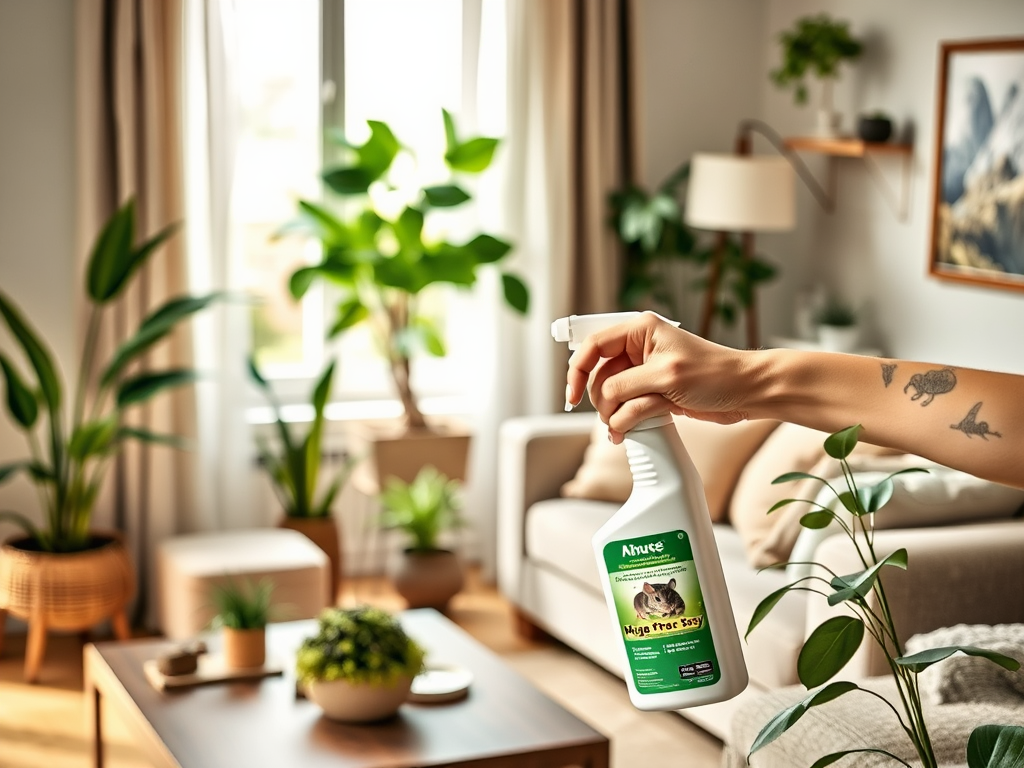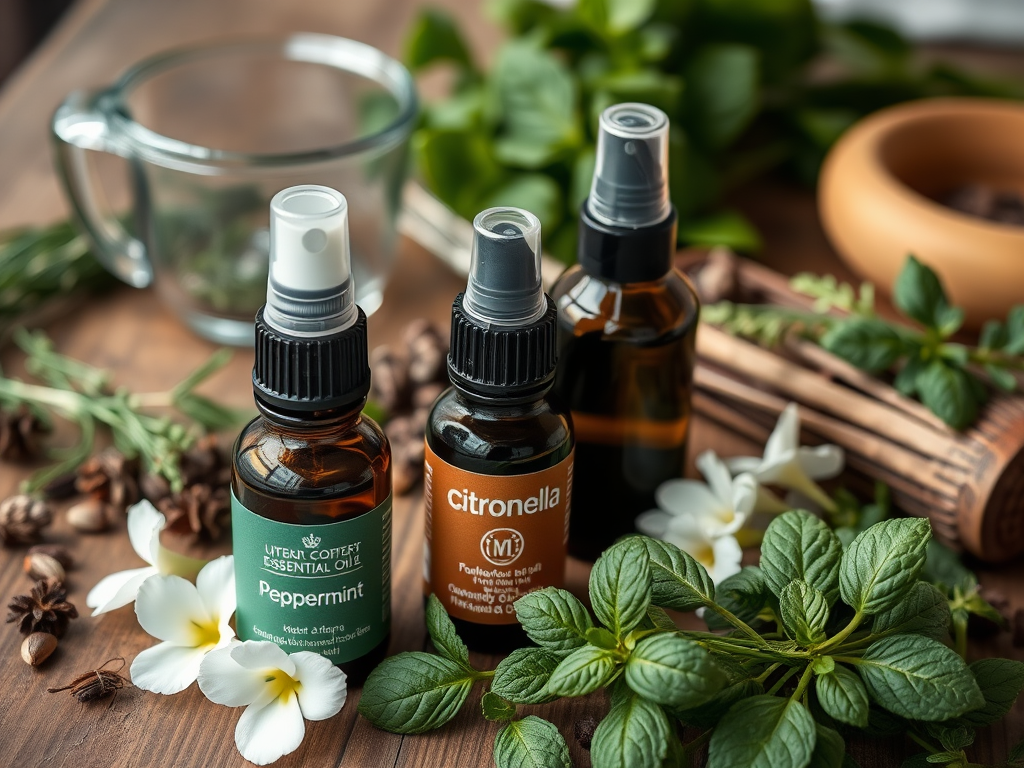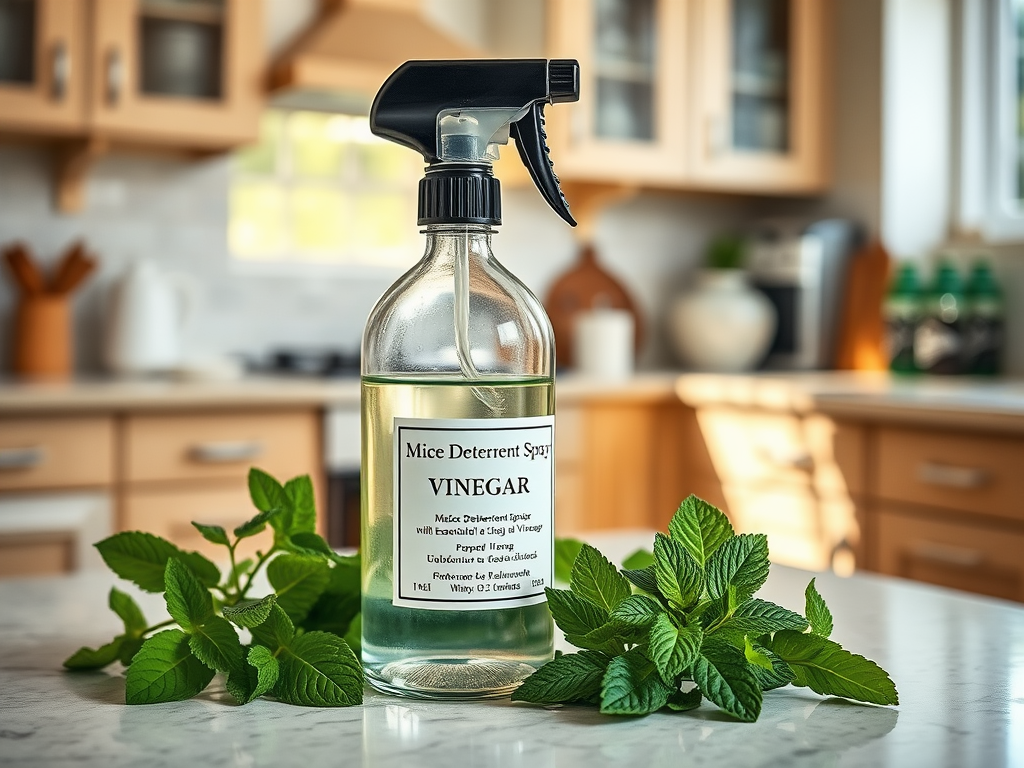Every homeowner knows that the presence of mice can create not just an annoyance but also potential health risks. These agile little critters often find their way into our kitchens, pantries, and even bedrooms, which can lead to a range of issues, from unsettling noises at night to contamination of our food supplies. Instead of relying solely on traps or poisons, many are turning to natural solutions that harness the power of scents to effectively deter these intruders. Formulating your own mice deterrent spray can be an engaging DIY project, allowing you to customize the ingredients according to your preferences and concerns. With a bit of knowledge about what scents are effective against mice, you can create a solution that not only keeps these pests at bay but is also safe for your home. This guide will walk you through the process, ensuring that you are well-equipped to eliminate mice using nature’s arsenal.
Understanding Why Scents Deter Mice

Mice have a finely tuned sense of smell that plays a critical role in their daily activities. They rely on olfactory cues to find food, navigate their environment, and identify potential threats. By understanding the scents that mice find displeasing, we can use this knowledge to our advantage. The effectiveness of certain scents in deterring mice is rooted in their evolutionary instincts. For instance, an odor that signals danger can prompt a mouse to retreat and avoid a specific area. Recognizing the natural behavior of mice is the first step in using scents as a mice deterrent.
Scents serve as powerful signals in the animal kingdom. Through pheromones and natural scents, animals communicate essential information about their environment and themselves. Some odors might attract mice, while others can signal danger or unwelcoming territories. By strategically using scents that mice dislike, we can make our homes less appealing to them. The key is to identify these odors and incorporate them into a deterrent spray. This approach not only addresses the immediate problem but also creates an environment that discourages mice from returning.
Key Ingredients for a Powerful Mice Deterrent Spray

To formulate an effective mice deterrent spray, selecting the right ingredients is essential. Certain scents are known specifically for their ability to repel mice. Below is a list of ingredients that have been proven to work:
- Peppermint Oil
- Eucalyptus Oil
- Citronella Oil
- Vinegar
- Castile Soap
Peppermint oil is known for its strong scent, which aphids find intolerable. Eucalyptus oil offers a refreshing aroma, while citronella, usually thought of for repelling insects, also deters rodents. But what makes these ingredients valuable is their ability to blend seamlessly with common household items.
| Ingredient | Effectiveness | Application Method |
|---|---|---|
| Peppermint Oil | High | Spray |
| Eucalyptus Oil | Moderate | Diffuser/Spray |
| Vinegar | High | Spray |
| Citronella Oil | Moderate | Spray |
When it comes to essential oils, their concentrated nature makes them highly effective. Each oil boasts distinct characteristics, contributing to an all-around stronger deterrent. Not only do they mask food scents, which attract mice, but they also create an aroma that mice instinctively want to avoid. This can help maintain a balance in your home, repelling unwanted pests while providing a refreshing scent to enjoy.
In contrast, while many choose to harness the power of essential oils, some household ingredients can serve as great allies as well. Vinegar, for instance, is widely known for its strong scent and cleaning properties. These characteristics make it a dual-purpose ingredient for both deterrence and cleanliness. By incorporating these natural components into your DIY mice deterrent spray, you gain control over your home’s environment.
Formulating Your Own Mice Deterrent Spray
Creating a homemade mice deterrent spray allows you to be creative while ensuring the safety of your space. Below are the steps to develop a custom solution.
- Gather your ingredients, such as essential oils and vinegar, along with a spray bottle.
- Combine the ingredients in the spray bottle at preferred ratios—start small and adjust based on effectiveness.
- Shakily mix the solution to ensure an even distribution of scents.
After formulating your spray, applying it appropriately is key to its success. Ideal locations include doorways, windowsills, and often-trafficked areas to keep mice at bay. Remember to reapply the spray regularly, especially after it rains or after cleaning these surfaces. Frequent applications help maintain an effective barrier against future invasions.
Safety Considerations
While the allure of homemade sprays might be appealing, safety should always be paramount. Ensuring that the ingredients used are non-toxic is crucial for protecting not just you, but also your pets and family members. Always follow recommended guidelines for dosages, particularly with essential oils.
When looking for non-toxic options, consider using organic essential oils and natural ingredients like vinegar. By opting for these solutions, you can be confident in their effectiveness while minimizing any unwanted interactions with children or pets. Research which essential oils pose potential health risks and keep them safely stored. By prioritizing safety, you’ll create an inviting yet secure environment.
Conclusion
Mice deterrent sprays formulated with effective scents can significantly reduce pest activity in your home. By understanding the nature of these rodents and the sensory cues that can repel them, you can create an effective and safe solution. Combining natural ingredients like essential oils and vinegar yields a powerful spray that is both eco-friendly and user-friendly. Armed with the knowledge from this guide, you can confidently tackle the challenge of mice invasions while promoting a safe haven for your family.
Frequently Asked Questions
- What scents repel mice effectively? Peppermint, eucalyptus, and citronella are known to be effective.
- Can I use vinegar as a mice deterrent? Yes, vinegar has strong scents that can deter mice.
- Is it safe to use essential oils around pets? Some essential oils can be harmful to pets; always research and use them cautiously.
- How often should I apply the deterrent spray? It’s recommended to apply the spray every few days or after cleaning the area.
- Can I use store-bought mice deterrent sprays? Yes, but ensure they are safe for your home and pets; natural alternatives are often preferred.


